
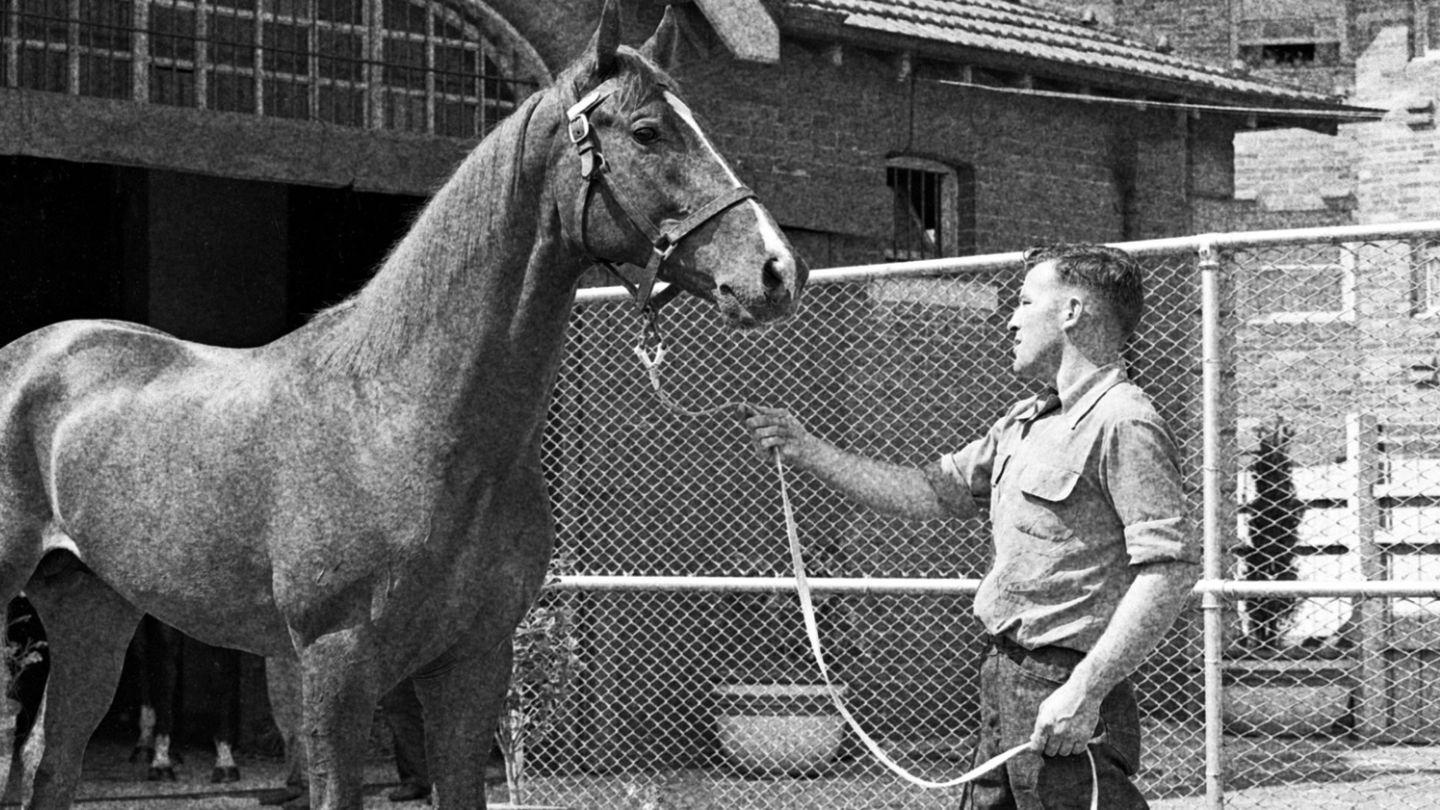
Buying your first racehorse? Here’s how to get started
Always dreamt of owning a racehorse? We've asked the experts for their top tips and tricks for buying your first flat horse...
Words: Izzie Price
If you’re a racing enthusiast, then the onset of spring only means one thing. Flat racing season is fast approaching; and with it, all the accompanying excitement, anticipation and adrenaline that only a day at the races can provoke.
It may be that you already own a racehorse, or shares in one: in which case, we wish you the very best of luck this season. But it may also be that you’ve always secretly (or not-so-secretly) harboured dreams of becoming a racehorse owner. In which case: this could be your year. After the year we’ve all had, we certainly couldn’t blame anyone for choosing to live in the moment.
It’s certainly an investment that has the power to get emotions running high, and to instil a real zest for life. “On race day you’ll be in the paddock listening to the jockey being given his instructions; you’ll feel physically sick when they go round behind the stalls; and you’ll yell like hell if they come with a chance a furlong out,” says longtime share owner Andrew Gosling. “You’ll need a good set of lungs!”
Sounds fun, right? But we know it’s not quite as simple as that. It’s all very well to say ‘seize the day!’ (and spent thousands of pounds in doing so), but there is a process involved.
So, where does one start, when it comes to buying shares in a racehorse, or buying a yearling outright? What are the pitfalls to look out for, or the pointers to be aware of? Well, we’ve spoken to those in the know, and we’ve got some gold dust advice from some of the greatest experts in the business (we’re talking royal connections) at the ready for anyone looking to take that equine plunge.
Dipping your toe in? Try starting out with a syndicate.
“It can be a bit of a minefield,” says Harry Herbert, Chairman & Managing Director at Highclere Thoroughbred Racing. “Where do you go? Where do you first find out about racehorse ownership? Of course, you can go to The British Horseracing authority; but here at Highclere, we’ve proven that we are a very good ‘one stop shop’, if you’re looking to dip your toe into the waters.”
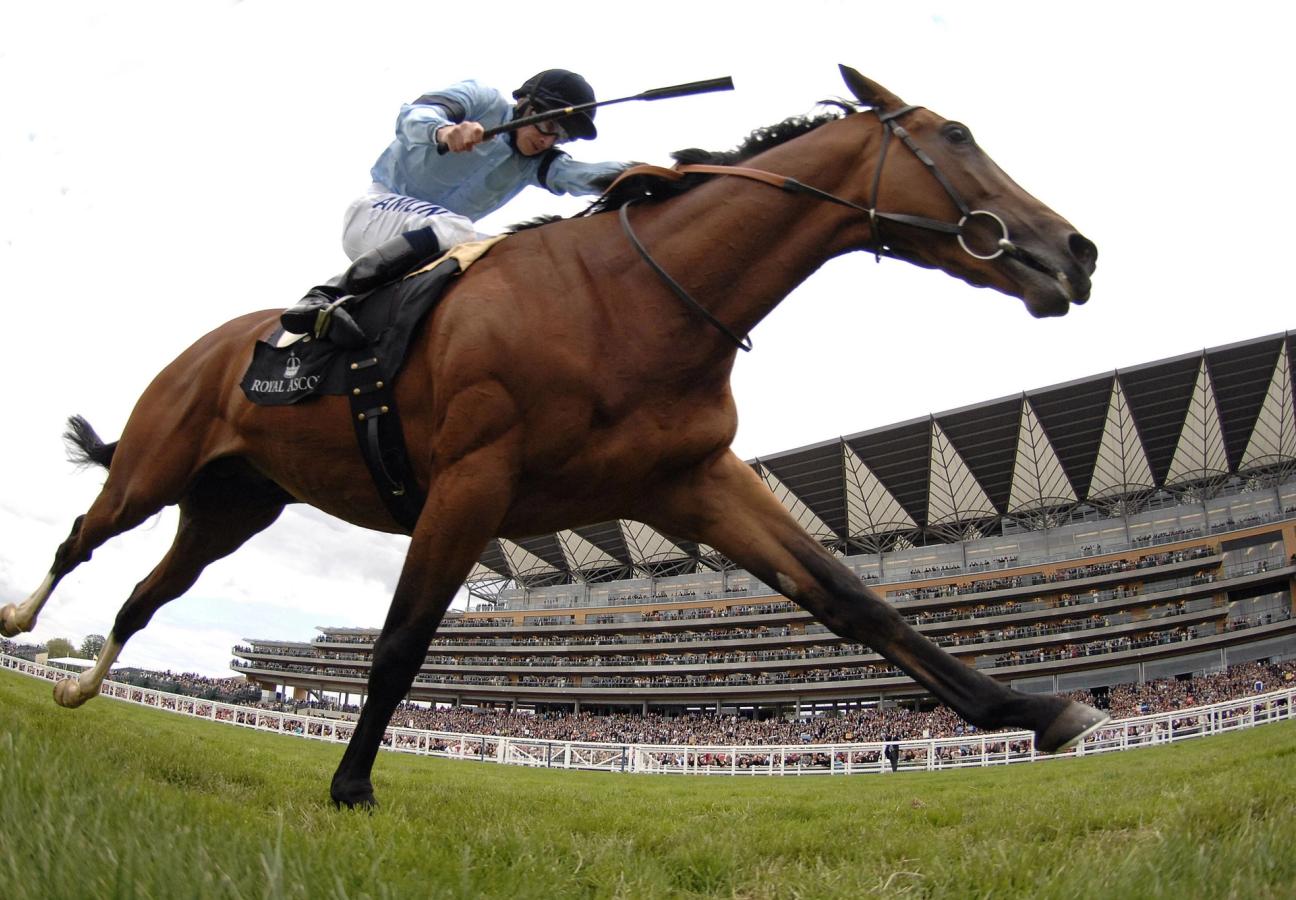
Highclere Thoroughbred Racing
Highclere specialises in syndicates. Essentially, this means putting small groups of people together to share in a racehorse. Participants will get all the enjoyment of owning a racehorse, and of the racing experience — with a significantly reduced cost.
Syndicate ownership is the preferred option for Andrew, who has had an interest in roughly 35 horses in more than a decade of owning small shares with Thurloe Thoroughbreds. The son of Tommy Gosling, a jockey who rode two of Winston Churchill’s most famous and successful horses (Colonist and Vienna), Andrew recalls school holidays “spent on the racecourses of southern England.”
In his opinion, a syndicate is the best possible route for anyone new to racehorse ownership; not least because of the reduced cost. “There’s a saying that the only way to end up with a small fortune in racing is to start with a large one!”, he jokes. “That’s why a syndicate will be the best option for most people, at least initially. You can buy into a syndicate for much less.”
"You've got to rely on the integrity of the operation..."
Highclere holds an undeniable allure when it comes to considering syndicate ownership. “Whichever syndicate company you’re dealing with, you’ve got to rely on the integrity of the operation,” says Herbert, firmly. “It’s got to have a proven track record of success, and obviously have a good name within the industry. Over the years, we’ve had several European Champions, we’ve had a World Champion — and each year, we’ve come up with some very good horses which people can effectively enjoy for very little money.”
Communication is very much at the heart of Highclere; to be a syndicate owner here will most certainly not be a passive experience. It’s an active ownership, in every sense of the word. “We act as racing manager to every individual person,” Herbert explains. “We’re constantly on the phone, [and organising] stable visits — the key ‘behind the scenes’ things that are absolutely vital as an integral part of racehorse ownership. Going to see your horse train, [you’re able to] stay in the Jockey Club rooms, have a lovely dinner…and then the next morning, [you’ll] go out on the gallops, see your horse saddled up, meet the trainer; and so on, and so forth.”
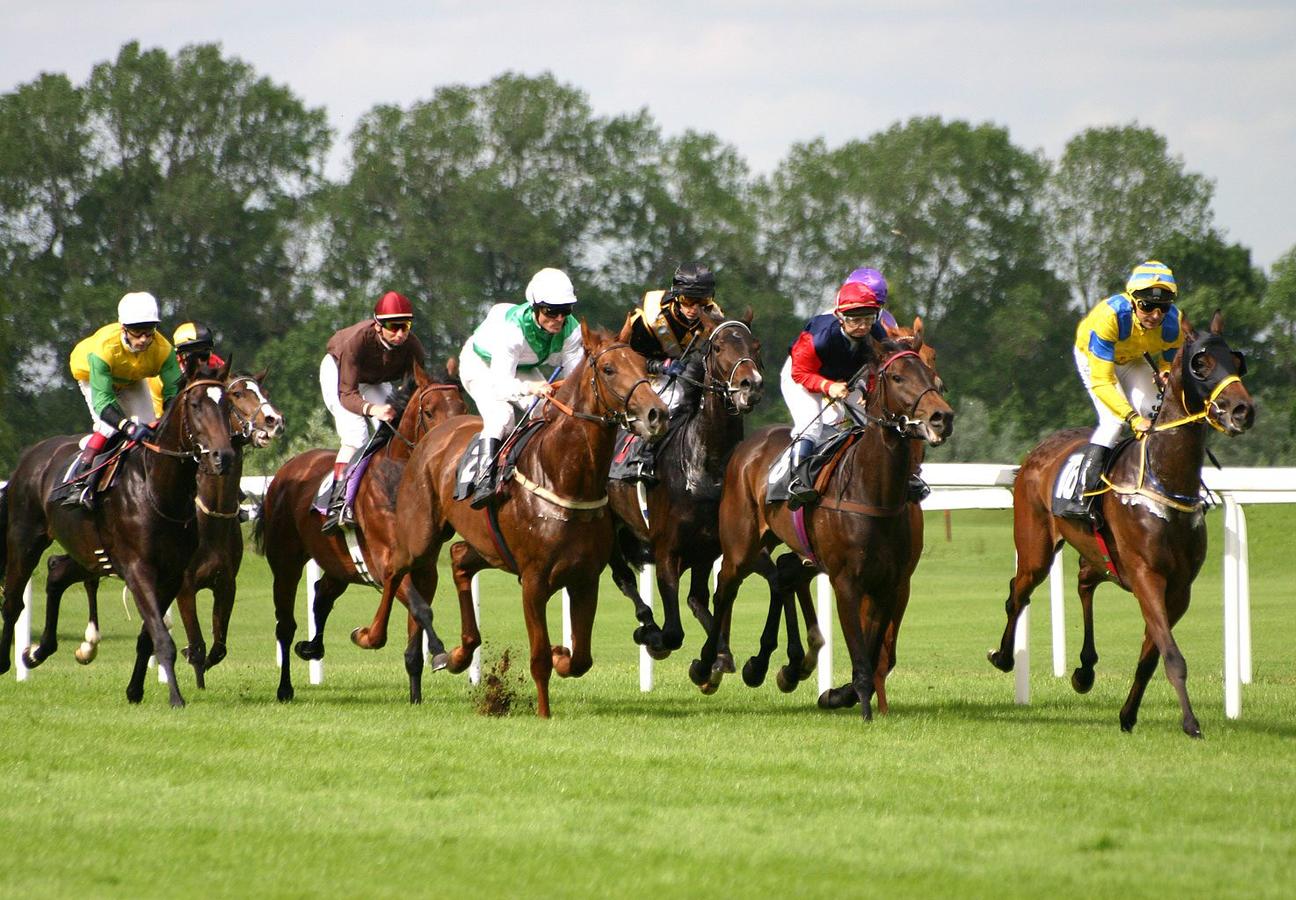
And it’s safe to say that Highclere has some of the very best people in the industry buying their horses. “Here, we [have] John Warren — the Queen’s bloodstock advisor and my brother-in-law — and my nephew Jake, who has very much inherited his father’s remarkable eye for trying to identify one year old horses,” Herbert explains. “And after using the top trainers, we’ll take [the horses] to Royal Ascot.”
If you’re looking to buy outright, expert advice is key.
Of course, it may be that you’ve always dreamed of buying your very own racehorse; and this is certainly a viable option. But if you’ve never owned a racehorse before, it’s important to make sure you’ve got all the right people around you.
This is the view of Sam Hockenhull, Head of Hedging at leading bookmaker Fitzdares. “If you were starting out, you’d probably start at the Yearling Sales at Tattersalls, in October,” he considers. “But you can’t just wander in there and start putting your hand up. Find someone that’s been there, and bought horses, who can make that process easier. If you had a bloodstock agent who could bid for you, that’s a lot smoother.”
It’s certainly important to surround yourself with experts if you’re making such a significant investment; not least because there are so many practicalities to consider, when it comes to choosing the horse itself. Hockenhull mentions that the list of ‘what to look for’ in a horse can be endless: “large nostrils, long, sloping shoulders and high withers” are just a few examples, and that’s before you’ve even got on to how the horse walks and moves.
"You want a horse that you like the look of..."
He does say, though, that there may be areas that agents or trainers could be willing to compromise on; and this compromise could be the difference between a two or three figure sum. “Some trainers — if you’re looking a horse front on — don’t mind if their foot turns in a little. Obviously, if you’re buying a horse that hasn’t done anything before, you’d like it to be straight in front; but that’s something that people will overlook.”
Hockenhull is keen to emphasise, though, that it’s not all about the practicalities. “As cheesy as it sounds, you want a horse that you like the look of. And you will find that, if you wander round the sales, you might ask someone to get a horse out — and the way it looks at you, the way you look at it…you might just think: ‘Yeah. This is the one.’ And hopefully, your trainer or your bloodstock agent is there to tell you: ‘Yes, this is not a total waste of time: this is a horse that we could go with.’
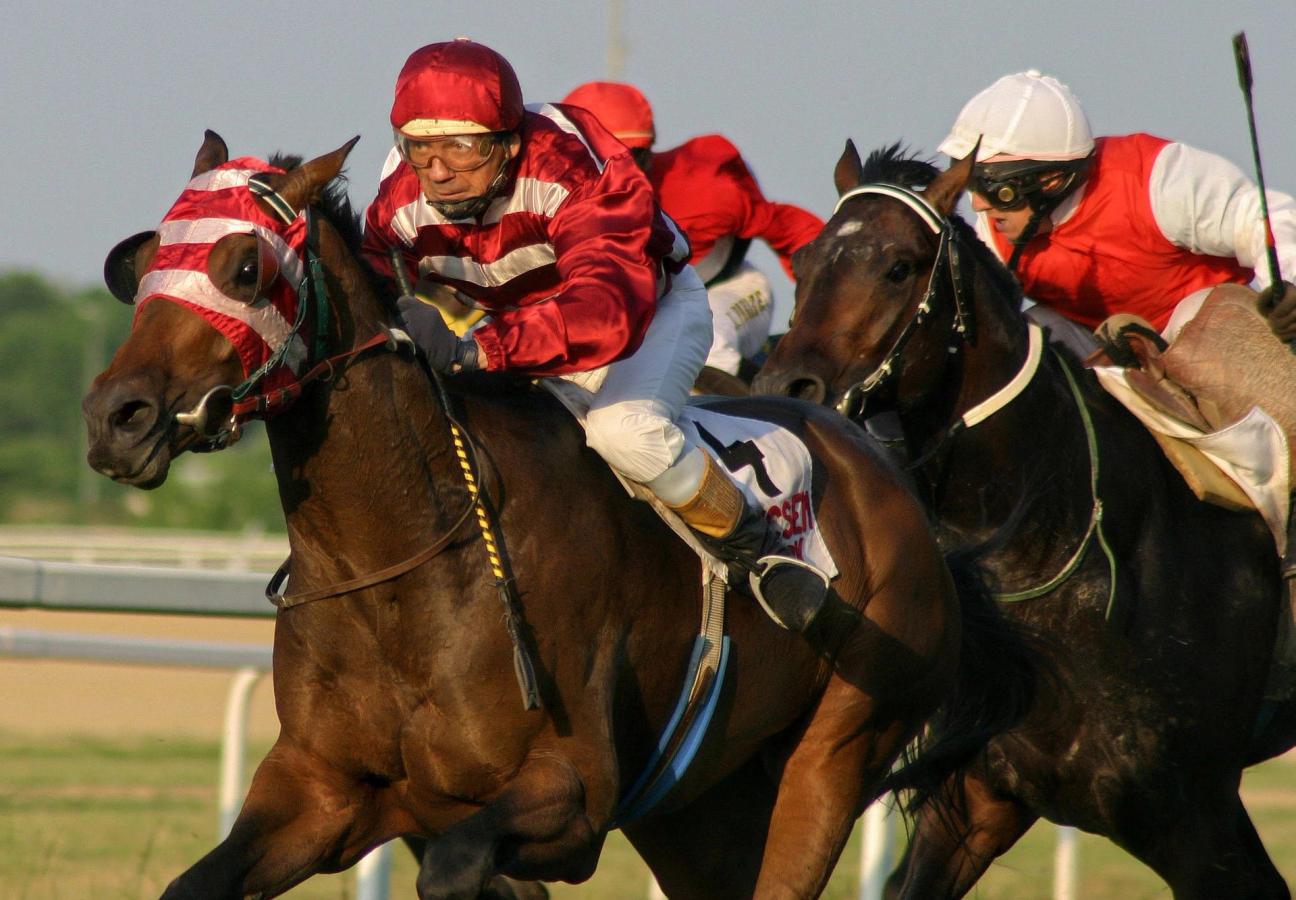
The most important thing? Have fun.
It can be easy to become overwhelmed by bouncing dollar signs and long lists of practicalities: but the crucial thing for any budding racehorse owner to remember is, simply, to have fun and enjoy the process. After all, it is a sport — and sports are recreational, at their very core. A racehorse isn’t intended to be a cause of stress, or angst; it’s a means by which you can enrich your life.
“Owning a horse, or a share in a horse, will give you emotional highs that are hard to find [elsewhere],” Andrew enthuses. “You’ll find excitement in buying your share and studying the breeding, in naming your horse, in watching it on the gallops as it’s prepared for racing. A racing yard as the horses pull out in the morning is a truly magical place.”
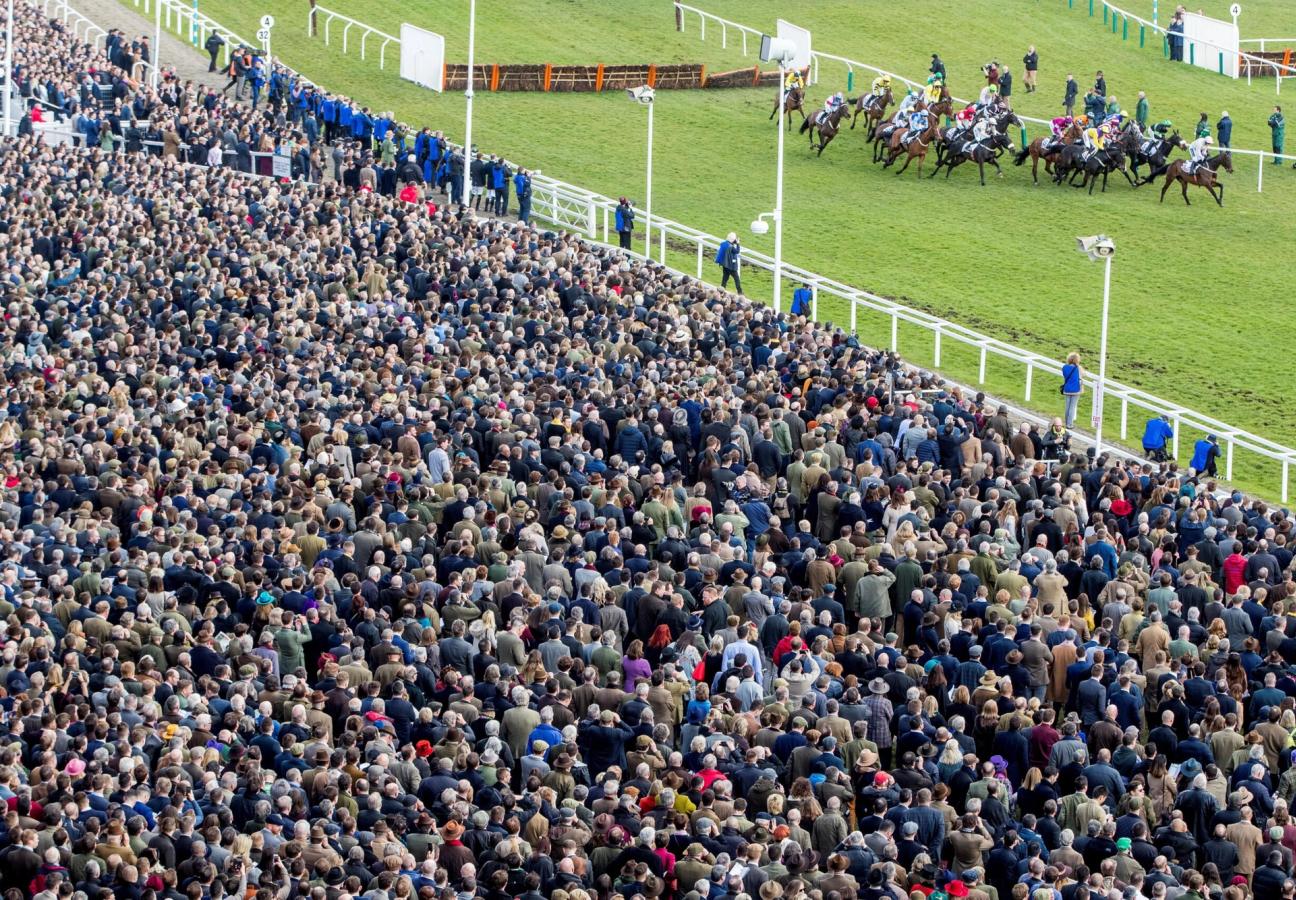
The crowd look on during the first lap of the Sky Bet Supreme Novices’ Hurdle Race;Cheltenham Festival Champion Day, horse racing at Cheltenham racecourse, UK – 13 Mar 2018
Jed Leicester for The Jockey Club
Hockenhull agrees completely. “You don’t buy a racehorse to make money,” he comments, with a wry chuckle. “You buy it because you get a lot of enjoyment out of it.” And when Hockenhull talks about the process of buying a horse, and of going to the sales, his enthusiasm is tangible. “You should feel like a — like a kid in a sweet shop!” he laughs. “When you turn up, and there’s a thousand horses for you to look at, and you’re thinking: ‘I get to take one of these home’. I don’t know what it is; but whenever you buy something that you really want, it is just fun, isn’t it?”
"You should feel like a kid in a sweet shop..."
And enjoyment is at the very heart and soul of the entire syndicate ownership process at Highclere. “If you go into Cartier with twenty grand, you’re expecting something a bit different; and at Highclere, that’s very important to us,” Herbert emphasises. “You’re going to meet some really interesting people; we have owners from every walk of life. And from our yearling parades, to picnics in the owner’s car park at Royal Ascot, to private lunches and dinners…[there are] all sorts of things that are relevant to the enjoyment of being a shareholder with Highclere.”
If one thing’s for certain, owning a racehorse — or shares in a racehorse — will transform your life forever. “One of the best days of my life was when my best horse, Baltic Knight, won the big race at a big day at a big course,” Andrew recollects. “That was nearly eight years ago, and I think about it pretty much every day.”
More into cars than horses? Lance Stroll is here to break the racing driver formula…
Become a Gentleman’s Journal member. Find out more here.


